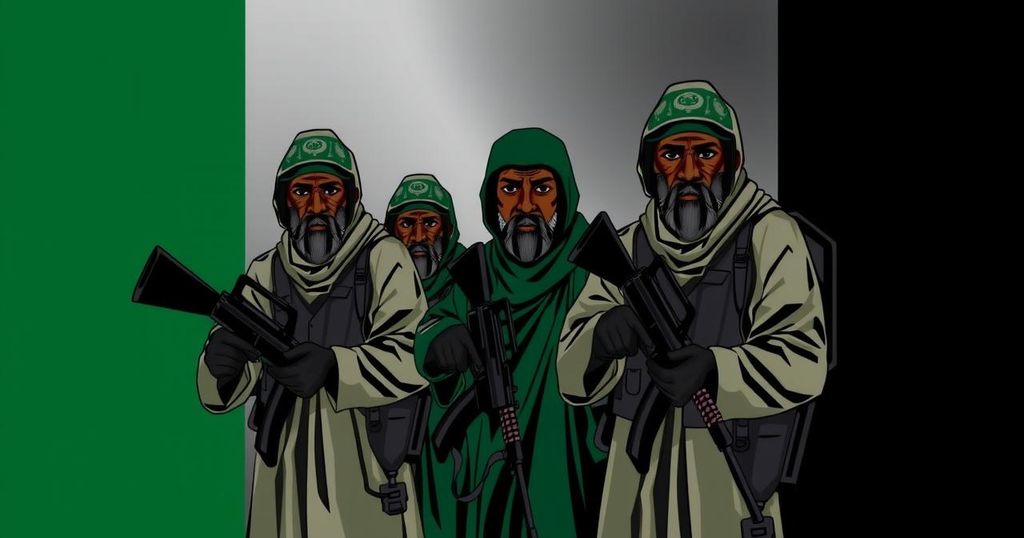Lakurawa: A Longstanding Terror Group Rising Amid Nigeria’s Security Failures
Lakurawa, labelled a new terrorist organization by the Nigerian army, has reportedly been active since 1999 and derived from local herders who evolved into a militant group. The situation reflects broader governmental failures in addressing security for communities in Nigeria’s northwest exacerbated by regional instability. Analysts argue that the group’s rise is tied to ungoverned spaces and ineffective government response, necessitating significant reform in local security measures.
The emergence of the terrorist group Lakurawa in Nigeria’s northwest region has been attributed to longstanding governmental failures to ensure security and stability. Despite claims by the Nigerian army that Lakurawa is a new entity, research indicates it has been active since 1999 and has evolved from a community protection force into a militant group with a distinct form of Islam. This progression reflects the critical role of ungoverned spaces in fostering your the rise of such violent extremism.
Analysts have highlighted the troubling conditions in the region, where poverty and insecurity have deepened, exacerbated by the influence of regional instability following military coups in neighboring Sahel countries. The group’s roots can be traced back to local traditional leaders who initially sought the assistance of herders to combat the rampant issue of armed banditry. While Lakurawa was successful in temporarily alleviating local threats, they subsequently turned against the communities that initially welcomed them, leading to further violence and the imposition of a strict interpretation of Islam.
The porous borders of Nigeria have enabled terrorist groups to operate with impunity, underscoring the shortcomings of the Nigerian government and security forces. Despite recent military operations targeting Lakurawa, the underlying factors contributing to their rise, including the government’s failure to maintain order and protect its citizens, remain unaddressed. This situation is exacerbated by a lack of preventive measures to address the infiltration of such groups and a reactive rather than proactive approach to security.
The rise of the Lakurawa group is indicative of a broader trend in Nigeria’s northwest, where armed banditry and terrorism have become endemic. The region’s instability has roots in complex socio-economic challenges such as poverty and hunger, combined with the impacts of recent political upheavals in the Sahel. The interconnection between local dynamics and broader geopolitical influences plays a significant role in shaping the security landscape of northern Nigeria. Understanding this context is essential for grasping the complexities surrounding groups like Lakurawa and the failures of the Nigerian state. The Lakurawa group’s transition from a community safety initiative to a militant organization demonstrates how local governance failures can give rise to extremist factions, further complicating the security framework in Nigeria. The transformational journey of Lakurawa illustrates the vulnerability of communities in regions void of effective governance and security, making them susceptible to radical influences.
The persistence of groups like Lakurawa in Nigeria highlights the urgent need for comprehensive security reforms. Addressing the challenges posed by ungoverned spaces and improving community policing are essential to countering the rise of terrorism in the region. Additionally, fostering stronger security cooperation with neighboring countries may help to mitigate the spillover effects of Sahelian instability. Establishing a framework for local communities to take proactive roles in their security would be crucial in reversing the trend of reliance on armed groups, thus restoring order and safety in the region.
Original Source: www.defenceweb.co.za




Post Comment